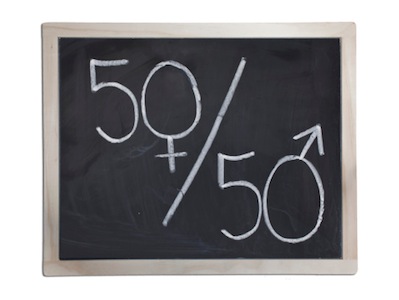Feminism is about eradicating social, political, and economic discrimination facing women and advocating for equality and equity among humans. So why all the bad press?
As a child, particularly one raised in a single-parent household, it was always apparent that women were equal to men.
As I witnessed my mother working two jobs, preparing three-course meals, cleaning, and supporting her family with minimal help, I realized that women were fighters. Fighters in a world that pays little attention to how much they are hurting, and one that does not focus on their health and well-being.
From watching my mother struggle with a smile, I realized that women were undervalued, seldom appreciated, and expected to be pleasant for everyone. Everyone except themselves.
Patriarchy is proud of that. In order to slap that smile from patriarchy’s face, it is vital to tear down patriarchal walls that permeate the lives of women, thus making them second-class citizens.
These same walls frequently render it acceptable for men to attempt to compete in “Oppression Olympics” without realizing that women, particularly black and brown women, have already “won” the gold medal. Society has constructed this. And these same walls usually ignore real-life situations where women are forced to fend for themselves despite being provided minimal options. Just ask Shanesha Taylor.
And though feminism changed my life, it often gets a bad rap. The simple use of the “F-word” leads to the illustration of women burning bras, “militant angry women trying to get their way in the world,” and repeated claims of hating men. And although I already knew that women were equal to men in any field, I, too, had to work to see past those stereotypes.
As time has passed and I have come to better understand my solidarity with women, I’ve also come to understand what feminism is and, more importantly, what it is not. In this search, bell hooks’ statement rings true: “if feminism can mean everything, it means nothing.”
There isn’t one right way to be a feminist, but there are several wrong ways. I have witnessed these wrong ways time and time again by people who claim to be feminists. So I’ve put together a list that may prove helpful to those who think feminism is as simple as “I love women.” The “I love women” mantra is often espoused by individuals to prove they do not loathe women when, in fact, these people often like and promote policies for only one type of woman.
But this is not what feminism is about.
This list explains what should not be included in feminism, while also providing context about the problematic, faulty types of feminism to which some people subscribe. This list is not exhaustive and is mainly for those who choose to advocate for one type of woman—usually those whose race, class, gender identity, and reproductive history closely aligns with their own personal imperatives:
- Feminism should not include racism.
- Feminism should not include homophobia, biphobia, and especially transphobia.
- Feminism should not include classism.
- Feminism should not include ableism.
- Feminism should not include the promotion of gender and sexuality as binaries.
- Feminism should not include the misgendering of transgender people.
- Feminism should not include privileging academic elitism.
- Feminism should not include advocating for transgender women to be housed in men’s prisons.
- Feminism should not include the restriction of reproductive freedom.
- Feminism should not include the intentional or subconscious exclusion of masculine women.
- Feminism should not include inaccessibility to those it needs to reach.
- Feminism should not include ageism.
- Feminism should not include using religious discrimination as a license to freely discriminate.
- Feminism should not include femmephobia and the denigration of femininity.
- Feminism should not include “but all men aren’t like that” statements.
Feminism is not what some people think it is. Feminism is not misguided, it is prudent. Feminism is not narrow, it is inclusive. Feminism should not be a word that people can use to silence others. Rather, it should be a word that recognizes the full complexities, nuances, and entireties of women.
Feminism is about eradicating social, political, and economic discrimination facing women and advocating for equality and equity among humans. Feminism is about fighting for equality because of, not in spite of, women not existing in a one-dimensional heterosexual, blue-eyed, blonde haired, wealthy, non-transgender, non-people of color box.
Feminism is where people like my mother stand a chance in a world that frequently refuses to recognize her whole existence.
Preston Mitchum is a regular contributor to Role Reboot. He is a civil rights advocate and legal writing professor in Washington, DC. Preston has written for The Atlantic, Huffington Post, Ebony.com, and Think Progress. Follow him on Twitter @PrestonMitchum.
Related Links:

